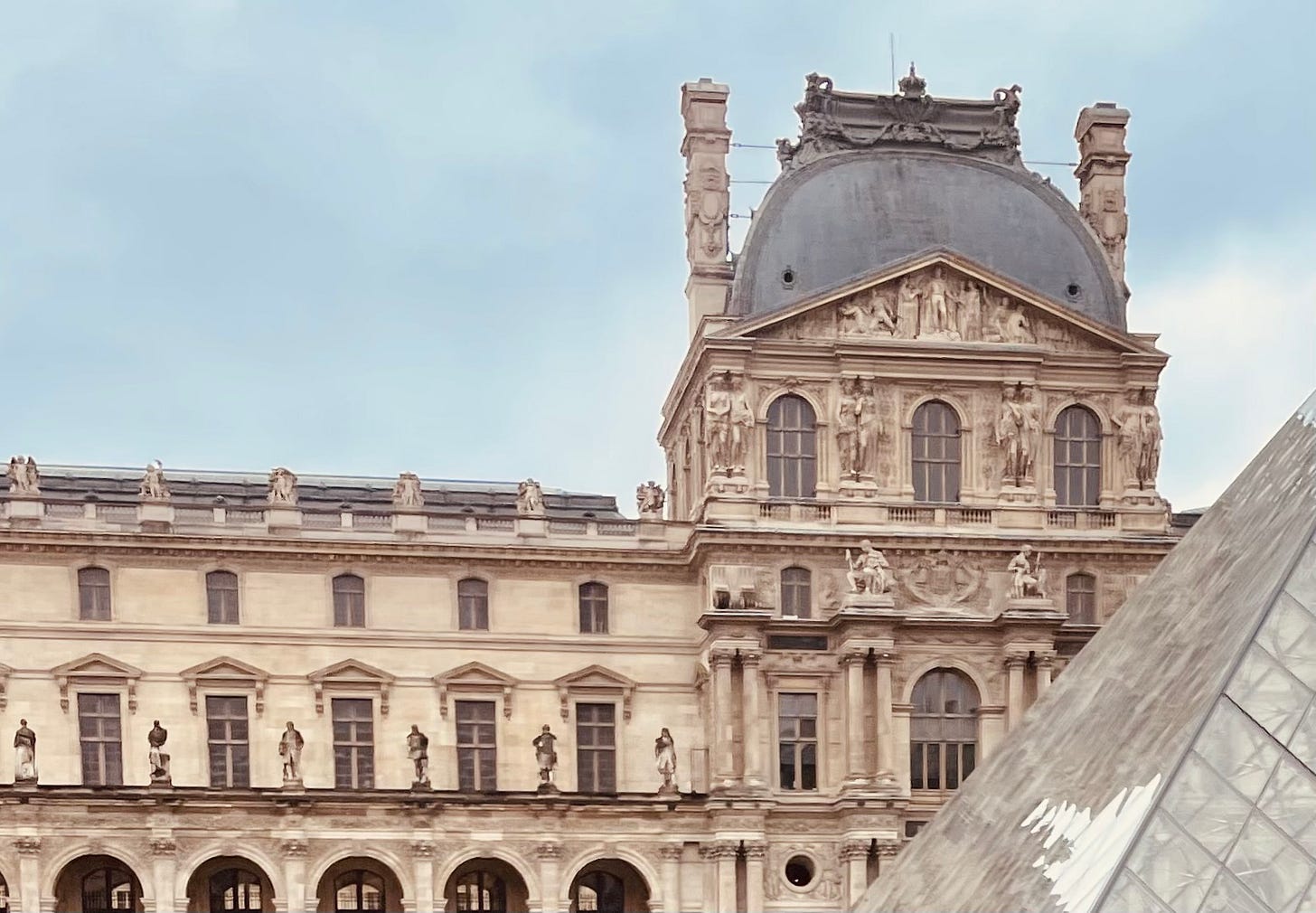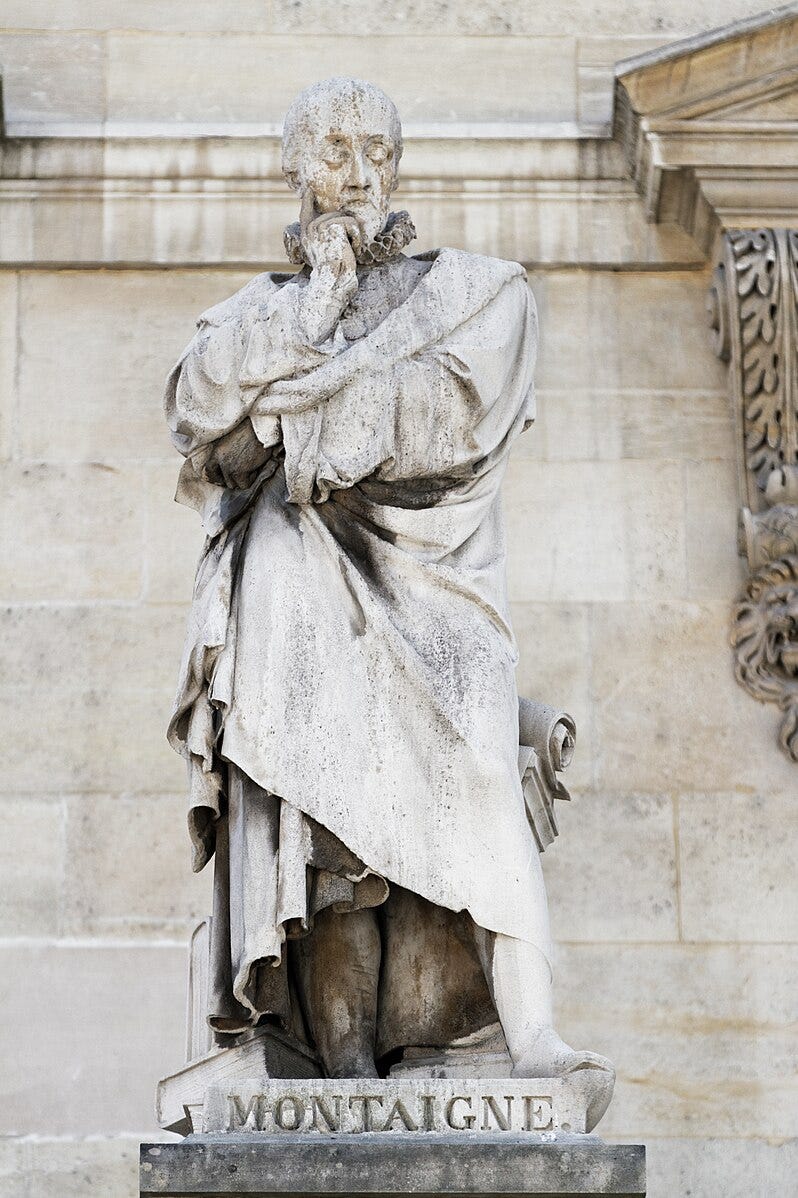Mythmaking
for my mother
My mother reminded me the other day not to be reductive about a person’s qualities. But story is a reductive process. In framing for impact or sense or palatability, there is so much dough lopped off. Naming the contradictions, the inconsistencies has been a way—my attempt—not to reduce.
My father is the moody Apollo as much as he is the music god’s antagonist Hermes, stealing his own cows in performances of self-sabotage. Growing up, I came to see his history as a mythology. We’re conditioned to see men as not only mythic, but complexly mythic, and as a masterful storyteller, my dad has only made himself more so, enacting a dozen different roles.
There’s a poem I love by Natasha Trethewey, “Mythmaker”; it’s about the myths Trethewey’s father told her, and later became himself in her imagination—Icarus, Narcissus, Beowulf, slayer of nightmares, deed-doer, and anointer. The poem falls in the very center of a collection of poems dedicated “for my father”. And at the very center of that central poem read the three lines: “my own face/ a mirrored comfort/ you’d pull me from.”1 What arrests me in this heart of her collection is the way in which her father’s myths drew her from her own image, the comfort of herself.
Who gets to be mythologized?
For my birthday this year, my mother took me to Paris. One needs only look up in the Louvre Palace to spot the mythology. It takes your breath away, to see statue after statue after statue of great French thinkers, writers, artists, theologians on display around and above you, glowering or grinning, depending on the sky’s mood that day: Montesquieu, Montaigne, Racine, Voltaire, Rousseau—almost 100 men flanking three sides of the pyramid, triangles of transparent glass waiting to be entered by a long queue. I’ll stop with the Freudian description.
See me reducing here?
Absurdly, it took me decades to realize they’re all men, to feel the utter absence of a woman. What does it mean about a species that for millennia we squandered over 50% of our species’ potential? The lost capability is crushing. The stories, art, invention, politics, philosophy, medicine, knowledge we might have—on our bookshelves, in our heads, adorning our architecture.
Imagine a world without Shakespeare? We live in a world without Shakespeare’s sister Judith, Woolf reminds us.2
Mythology is a search for answers, a loose call-and-answer story collection, and I want women to be answers as much as they’re questions. I’m obsessed by the missing mythologies of women.
Preoccupied as such, I’ve worked hard to create one for my children: I tell them stories, avoid the happily-ever-afters, make them safely scared so they’ll remember, like I’m a beneficent god. Sometimes, I hear them, on the landing above or below me, telling tales of what I’ve told them a week ago, a month ago, and I’m delighted I’m there, on their lips, in their conversation, in the mythology they’re assembling.
Curate me, children.
In the things they covet and talk about, my children have reminded me that rings are mythical things. When I was a child, I coveted my mother’s wedding ring. Today, I have a mudlarking license, I’m a beachcomber, a seeker, and I know so much of what I’m searching for is the impossible: my mother’s ring.
It was gold and thick, so thick it reached halfway to her knuckle. It seemed as much a part of her hand as the metacarpal bone below it. When I was eleven, we spent a week in Sanibel Island, swimming and collecting shells. On our last night, we waded into the ocean to jump the waves and watch the sunset. My dad hung back, a cat at water. The sea was rough, and my mom took my brother’s hand in one hand and mine in the other.
If I had thought at the time about what side I was standing on, I’d know the answer to this story.
The sea was afoam and everything glowed pink, an oyster shell of a day’s end. And then the impossible: one of us, somehow, pulled the ring that belonged to her finger off her finger. It’s a Herculean task, sliding a ring off someone’s lazy finger, over an untaut knuckle, but one of us did it, and the ring, such a solid thing, unfelt by us, was gone.
We plunged again and again, but it was gone.
To this day, my mother has refused to tell us which one of us pulled the ring off her finger. She didn’t want us to feel guilty, she wanted to protect us from using it, cannon fodder for the argument of whom mom loves more.
This story is a mom myth, of restraint and generosity. An Eve protecting her Abel from her Cain, her Cain from her Abel. An archetypal story.
A reduction.
But what if—what if—the ring slipped off her finger, momentarily fell into the palm of her girl child or her boy child, and she felt the foam all around her, and she listened to the waves hitting the shore like a drum, and she saw the sun sink below the horizon, a sky divine, and what if she thought, how wonderfully mythic to lose a ring in an ocean, to have a child wild in excitement do the impossible, pull a ring off its mother’s finger, to make this a mystery only I will know, to ensure in its mystery, they will never forget it.
What if she was generous and self-indulgent? What if, losing a ring in a pastel world, she is both?
“You couldn’t have known
how I’d take your words and shape
them in creation, reinvent you
a thousand times, making you
forever young and invincible.”
“Mythmaker” in Domestic Work by Natasha Trethewey
A Room of One’s Own by Virginia Woolf




So lovely Alissa.
“But what if—what if....” is such a profound way to live life as it gets us out of our own narrow story and widens possibility, as well as connects us to mystery.
🙏